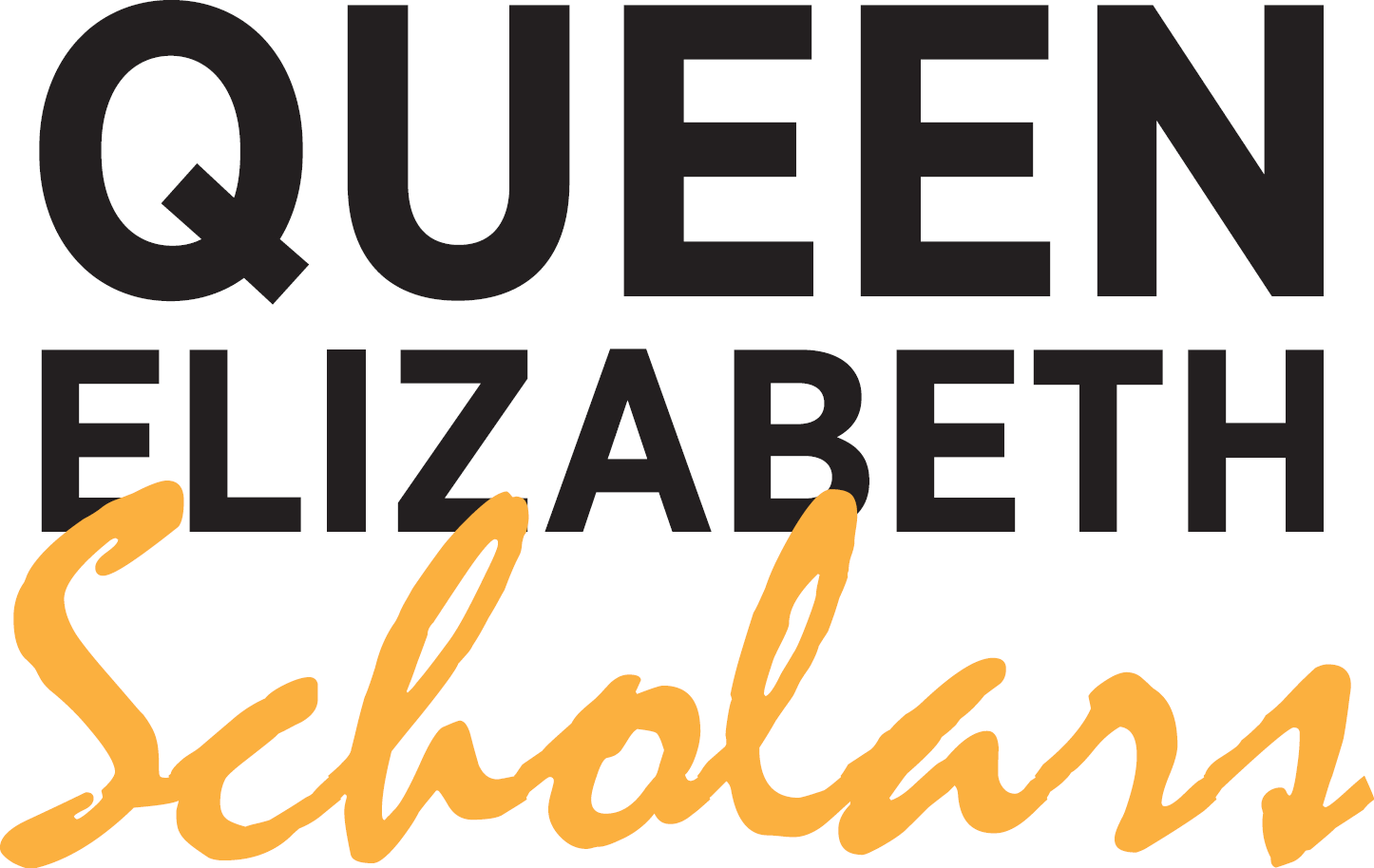It’s one step toward a much larger vision of ocean health in British Columbia—and Canada. The UBC Department of Earth, Ocean and Atmospheric Sciences (EOAS) and Go Global have just received funding for PROTÉGÉ, a multi-year graduate student exchange program between UBC and Chile addressing climate change and other human impacts on coastal oceans along the eastern Pacific Rim.
Though some 12,000 km apart, the glacier-carved fjords of coastal BC and southern Chile are remarkably similar in both biology and chemistry—an optimal setting for researchers to combine resources and expertise.
In addition, “there is a strong need for science-based, Indigenous-informed approaches to marine resource stewardship in the face of rapid climate change,” says Dr. Philippe Tortell, EOAS Professor in the Faculty of Science. “This small program fits into what we hope is a much bigger canvas, ultimately leading to a major national-scale investment in Pacific Ocean research in Canada. That’s the scope of our ambition.”
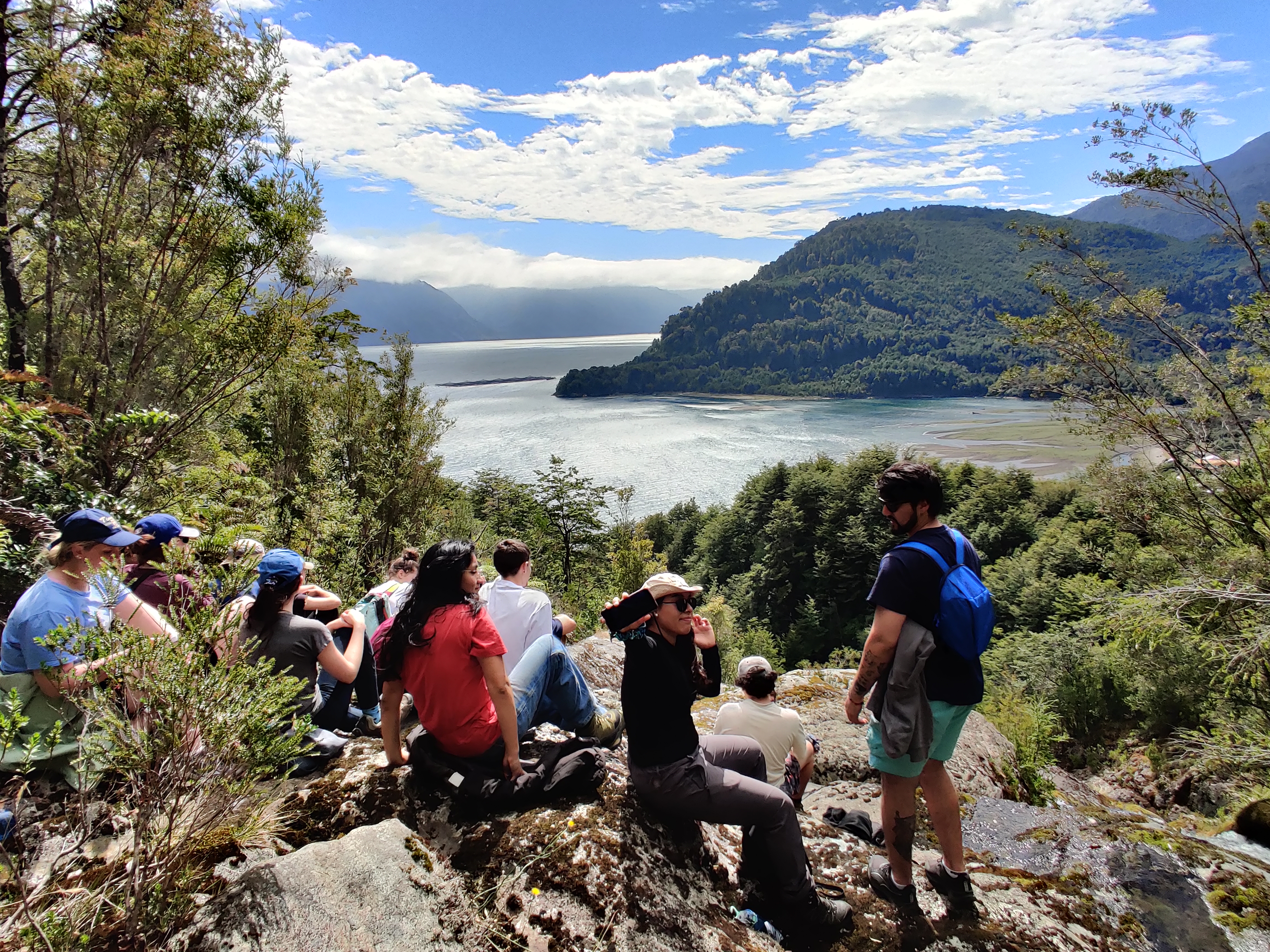
PRODIGY students exploring the scenery of Comau Fjord, Chile during the 2025 summer school at the San Ignacio del Huinay field station (photo: Philippe Tortell)
Universities Canada awarded EOAS and Go Global $300,000 for a joint proposal to the Canadian Queen Elizabeth II Diamond Jubilee Scholarship Program (QES). Combined with matching funding from various UBC sources, the total budget for PROTÉGÉ is $434,000. QES supports projects focusing on adaptation, response and resilience to climate change—including biodiversity, community resilience and ecosystems—with an emphasis on diversity and inclusion. A key aim is to amplify the impact of young leaders on local and global communities.
“I’ve been on about this for 10 years or more,” notes Dr. Tortell, who is travelling to South America with a number of UBC researchers in November to sign a new UBC cooperation agreement between Canada and Chile in the area of ocean research and education. “Ideas often take a long time to percolate. But once you start to get traction, momentum speeds up.”
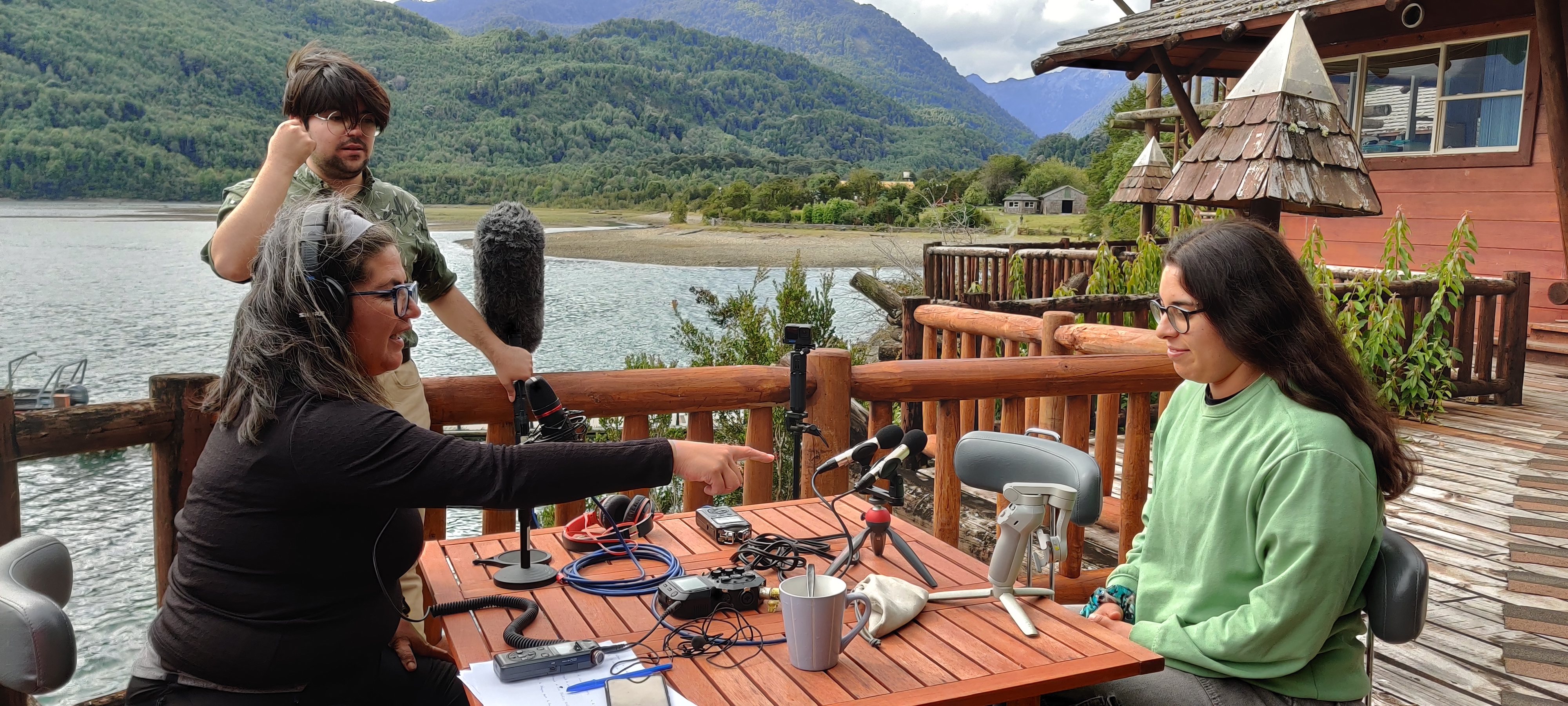
Chilean composer and professor of music Valeria Valle (seated left) interviews a PRODIGY graduate student, Luz Monsalves (seated right) as part of a podcast series taped during the January 2025 summer school run at the San Ignacio del Huinay field station in Chilean Patagonia (photo: Philippe Tortell)
Twelve UBC and 12 Chilean students will collaborate with several universities and private foundations in both countries on interdisciplinary, bilateral research, community engagement and experiential fields school visits in Patagonia, at UBC Vancouver, and on Vancouver Island at Bamfield Marine Sciences Centre.
But it’s not just about science. Dr. Tortell has orchestrated arts-science collaborations before, through the recent Heavy Metal Suite project, which explored the future of minerals and mining. This time, the idea is to build a program with music composers. Up to five of the 12 UBC students heading to Patagonia next year could come from the Department of Music. They might, for instance, undertake projects translating ocean data sets into a musical representations (different pitches, tones and rhythms, for example), providing creative new ways to understand patterns and variability in ocean processes. “This type of interdisciplinary work is increasingly common,” says Dr. Tortell, “but still not typical.”
Says Valeria Gisel Valle Martinez, composer and Music Professor at the Pontificia Universidad Católica de Valparaíso: "It's very important that the program incorporates the concept of science plus art as an interdisciplinary experience. The audio signal not only provides scientific information, but is also a source of territorial and cultural inspiration."
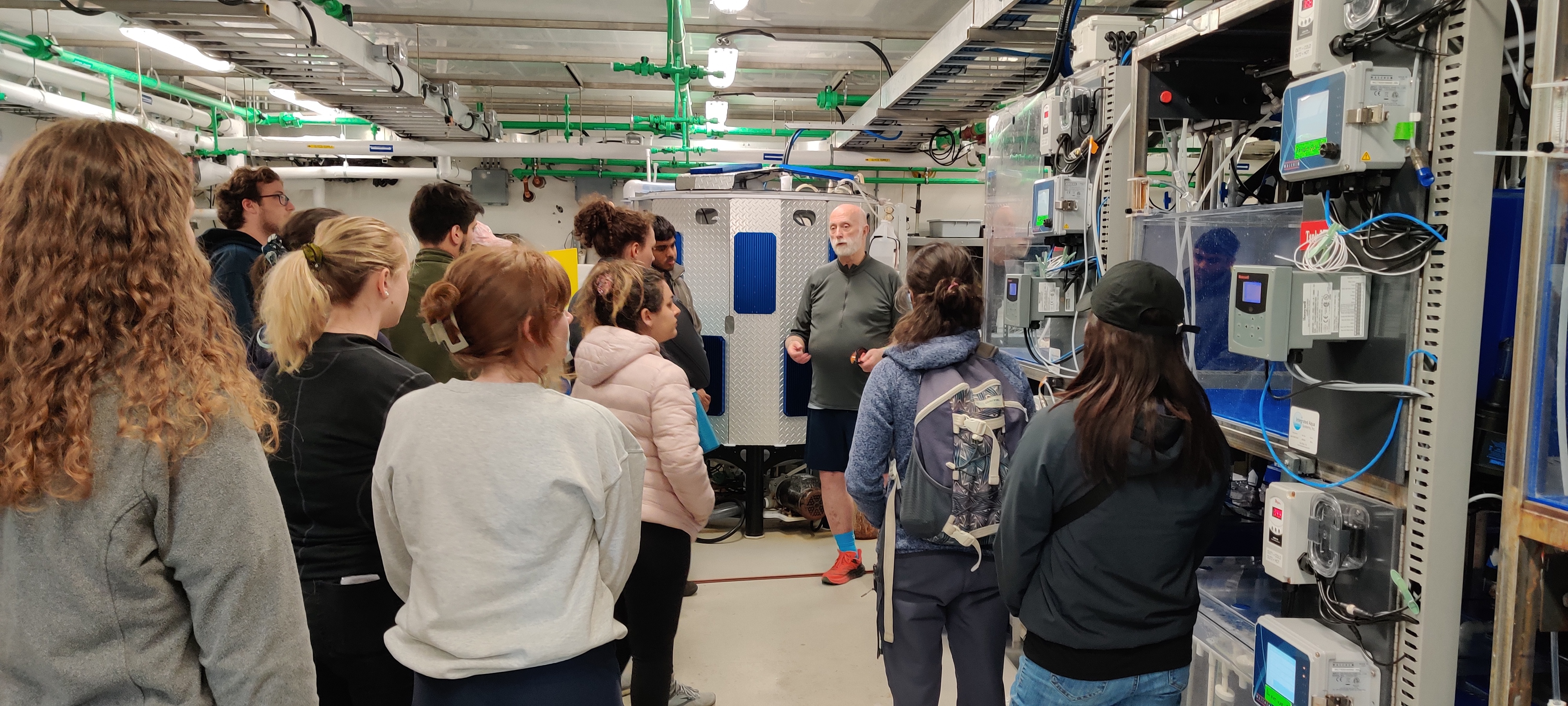
PRODIGY students visit the Marna lab at the Quadra Island Ecological Observatory during the 2022 summer school: the laboratory is operated by the Tula Foundation’s Hakai Institute to conduct ecological experiments related to ocean temperature change and acidification (photo: Philippe Tortell)
Adds Cheryl Dumaresq, Executive Director, Global Engagement: “The PROTÉGÉ project will also allow Go Global to build on existing relationships and programming with communities in Chile, deepening UBC’s engagement with South America.”
Go Global, a unit of the Office of Global Engagement, administers an array of UBC inbound and outbound mobility programs with 300-plus international partners: student exchange, research abroad, summer short courses and field schools. These programs support more than 2,000 inbound and outbound students annually, with $1.4 million in awards each year.
Go Global has directly administered or provided support for two Global Skills Opportunity (GSO) Mobility projects worth $500,000 since 2021, and two GSO Innovation projects worth $50,000 each. In 2023 and 2024, GSO funding supported 90 students to attend five Forestry field schools: the majority of participants were Indigenous students, students with disabilities or low-income. Between 2022 and 2024, Go Global’s Indigenous Global Connections project supported virtual exchange and Global Seminars for 78 Indigenous students, low-income and students with disabilities. To date, UBC has twice been a recipient of QES funding.
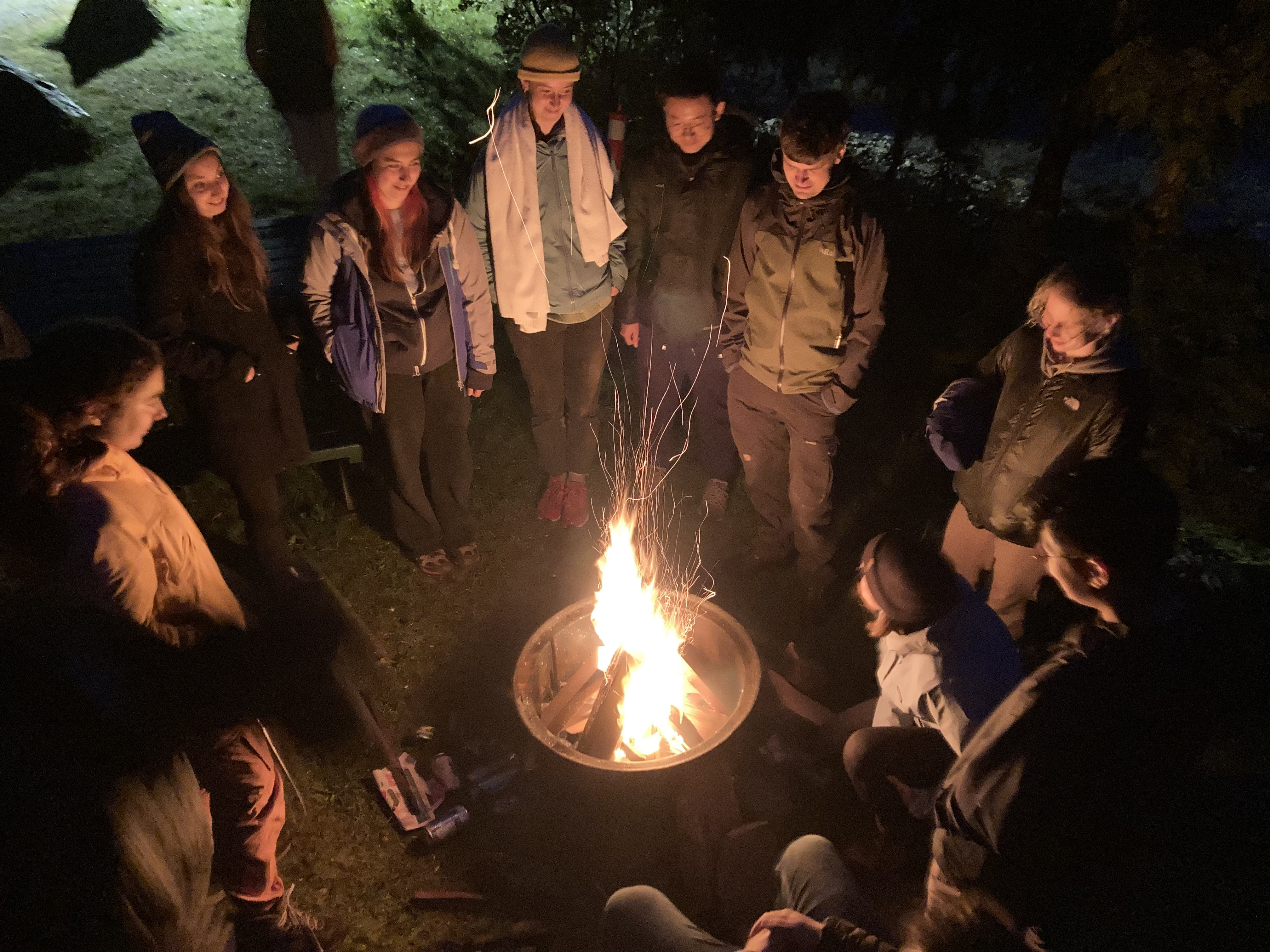
Students enjoy an evening bonfire at the 2022 field school on Quadra Island (photo: Philippe Tortell)
The PROTÉGÉ program builds on a successful National Sciences and Engineering Research Council of Canada (NSERC) graduate student training program named PRODIGY, or Pacific Rim Ocean Data Mobilization and Technology, which is now entering its fifth year. Like PROTÉGÉ, PRODIGY has an explicit focus on Canada-Chile collaboration in ocean research, bringing students together from different fields of oceanography—biology, chemistry and physics—along with students in statistics and computer science, to explore state-of-the-art methods for the collection, analysis and communication of ocean data. A big thrust of PRODIGY has been student exchange via online courses, workshops and field schools at the Bamfield Marine Sciences Centre, Quadra Island Ecological Observatory (Tula Foundation) and in the Patagonian fjords.
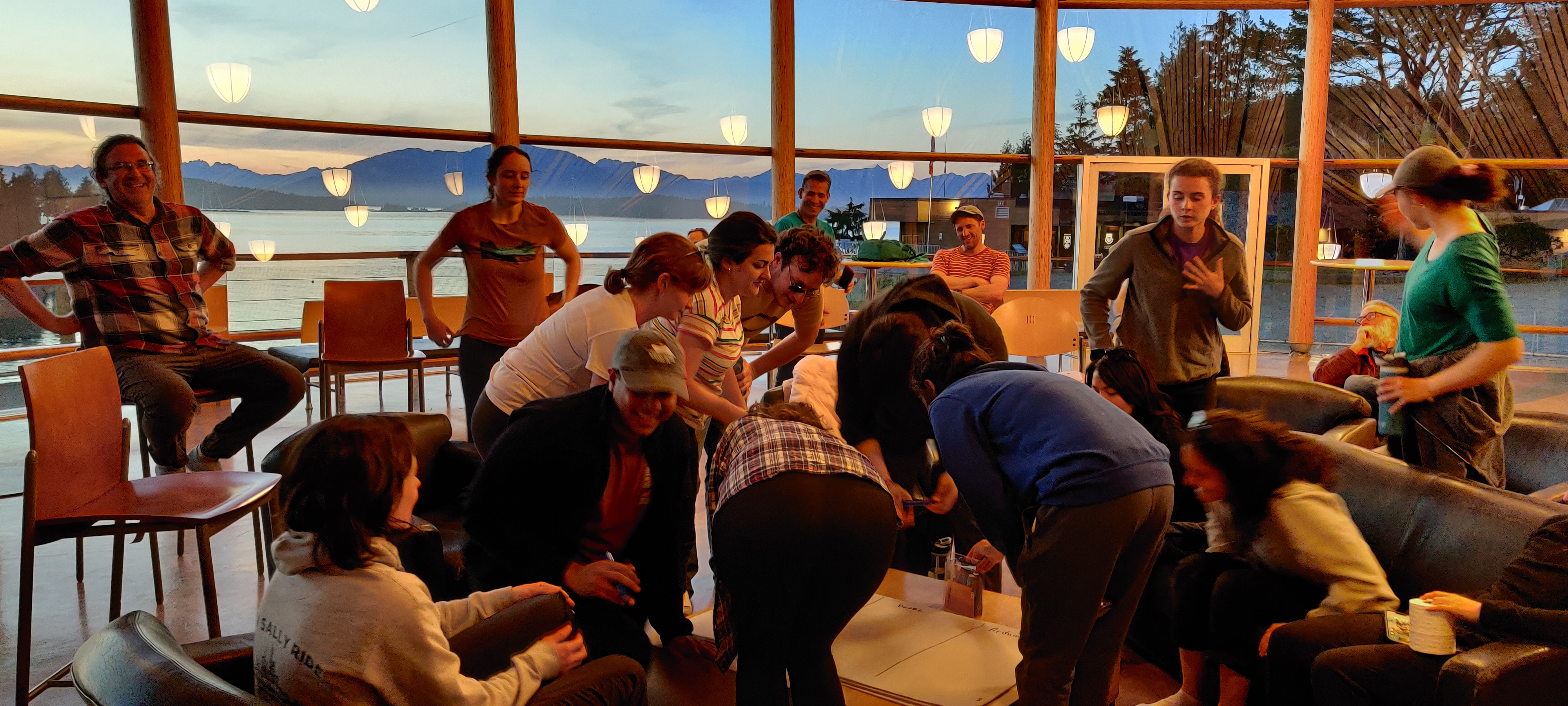
PRODIGY students plan collaborative projects and boat schedules at the 2024 summer school at the Bamfield Marine Sciences Centre on Vancouver Island, BC (photo: Philippe Tortell)
“It’s a pretty spectacular opportunity to bring researchers from both countries together, exploring how we might work together to address common ocean problems,” says Dr. Tortell. “I’m excited about the opportunity to build this relationship between students and research professors, and to see students come alive with the realization that there is a whole other context, half a world away, where they can conduct research in a different, yet oddly similar, manner.”
Find out more about UBC Go Global programs.
Read more about the UBC Department of Earth, Ocean and Atmospheric Sciences.
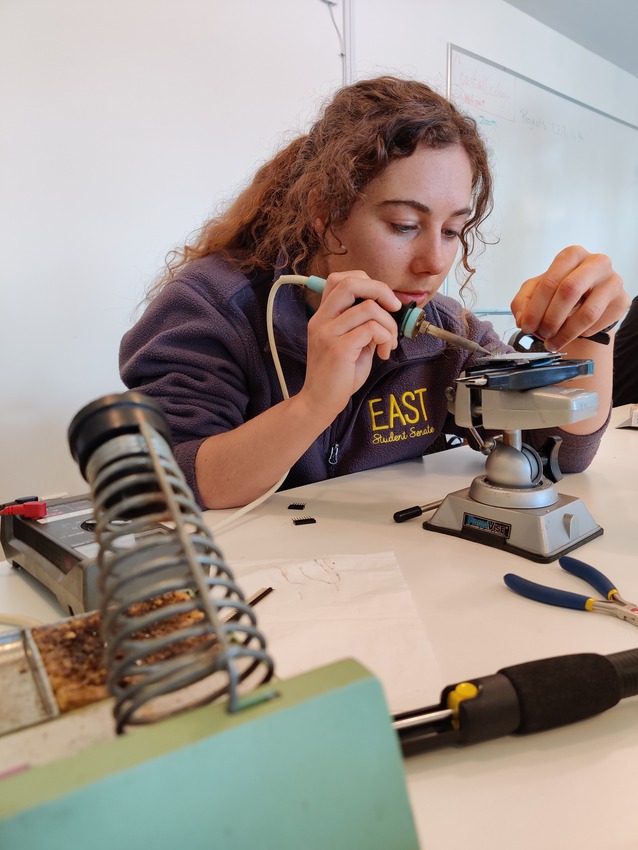
UBC PhD student Geena Little soldering connections for an Arduino micro-controller used in a simple accelerometer to measure ground shaking motion: she and other students build these as part of the 2022 PRODIGY summer school at the Quadra Island Ecological Observatory, run by the Tula Foundation (photo: Philippe Tortell)
